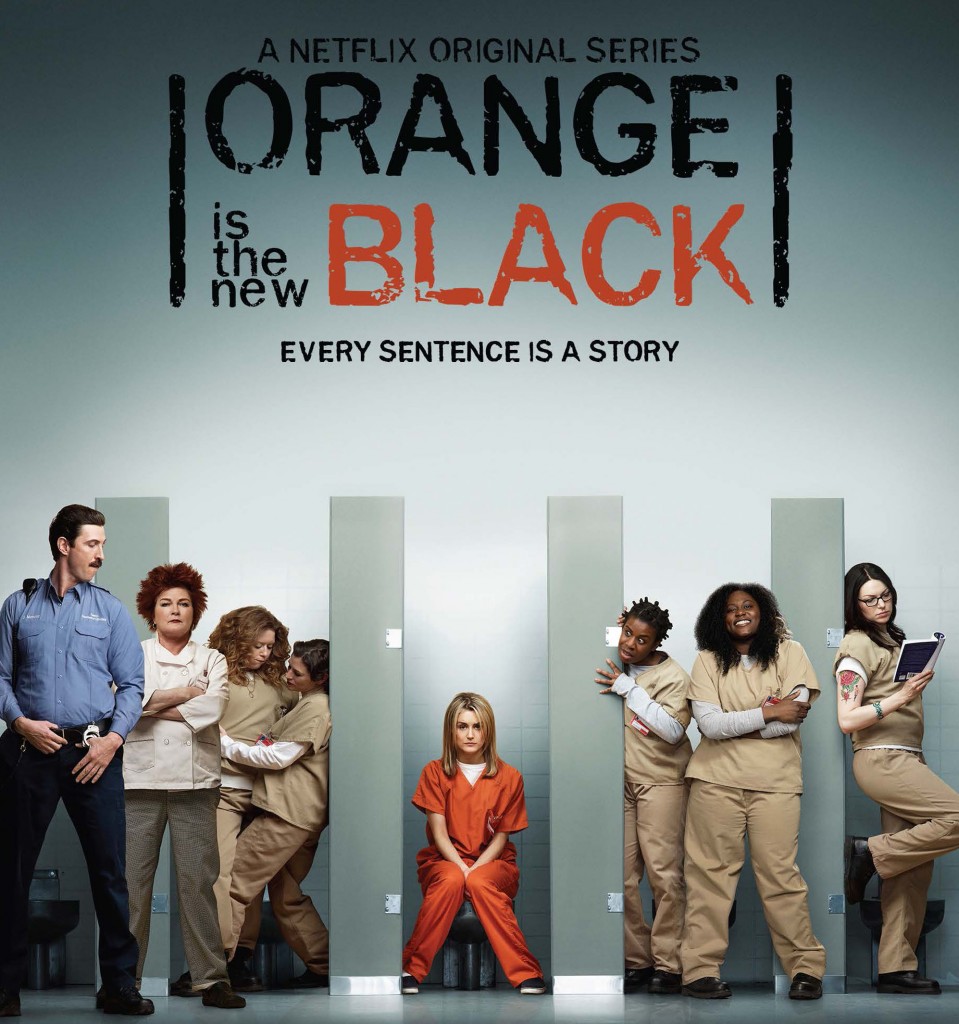
Image Credit: Heroine TV
Given my fascination with what's visually acceptable and what's considered outré or even repulsive about women's bodies, I'm personally shocked that I haven't yet made time to talk about Orange Is the New Black, a semi-new Netflix Original Series. Season 1 appeared en masse on July 11, and I, for one, lost a few days of my life greedily devouring every single hour-long episode. The premise at first gave me pause. An upper-middle-class white woman, Piper Chapman, is incarcerated years after the fact for helping an old girlfriend smuggle drug money across some international borders. Trials and tribulations for her ensue in a women's prison. I was a bit concerned that the show would make light of its own topic and elide very real health, safety and human rights issues facing minority women serving time. However, I was pleasantly surprised at the thoughtful, sympathetic way with which the show attempts to deal with sociopolitical issues. The cycle of poverty, drug use and LGBQT discrimination all get decent airtime, and, though I'm a bit removed from the experience, I can't recall many particular moments that made me cringe (though I do plan on using a later post to discuss the show's treatment of abortion).
My interests, however, concern the “mysteries” of the female body, and the show has some creative ways of highlighting what American culture considered unspeakable. In light of the tampon fiasco this summer in Austin, TX, the way the inmates turn sanitary napkins to account by using them for everything from shower flipflops to eye masks, betrayed not only touches of realism but the deft touch of symbolism. Sofia praises Piper for her “creativity” in using pads as shower shoes, and Piper presents her bunkmate with an eye mask crafted of rubber bands and a Maxipad. These items, provided due to “biological necessity,” are transformed into marks of a shared, female experience.
The poster I've included features a key point of shock in the pilot episode. Piper Chapman struggles with the humiliation of being expected to use the bathroom in a stall with no door, making her visually accessible to the other inmates in what has heretofore for her been a moment of extreme privacy. The show even subtly reenforces this point when it shows Piper retreating to her own bathroom before being imprisoned to hide her weeping from her fiance. I'm still trying to work out the implications of the door removal. When Piper is finally able to use the doorless stall with a minimal amount of embarrassment, she seems to have asserted herself as a member of an intimate community. The absence of privacy, in this sense, signals belonging. However, and as the poster reminds us, the inmates bodies are also exposed to the violating gaze of corrupt prison guards and officials. The poster also suggests that the show itself removes the doors and lets the viewer witness incredibly personal, probably humiliating stories. The sophistication and smirking wit of this metaphor serves as an indicator of just how smart this show can be.

Recent comments
2 years 29 weeks ago
2 years 44 weeks ago
2 years 44 weeks ago
2 years 50 weeks ago
3 years 4 weeks ago
3 years 4 weeks ago
3 years 4 weeks ago
3 years 6 weeks ago
3 years 6 weeks ago
3 years 6 weeks ago